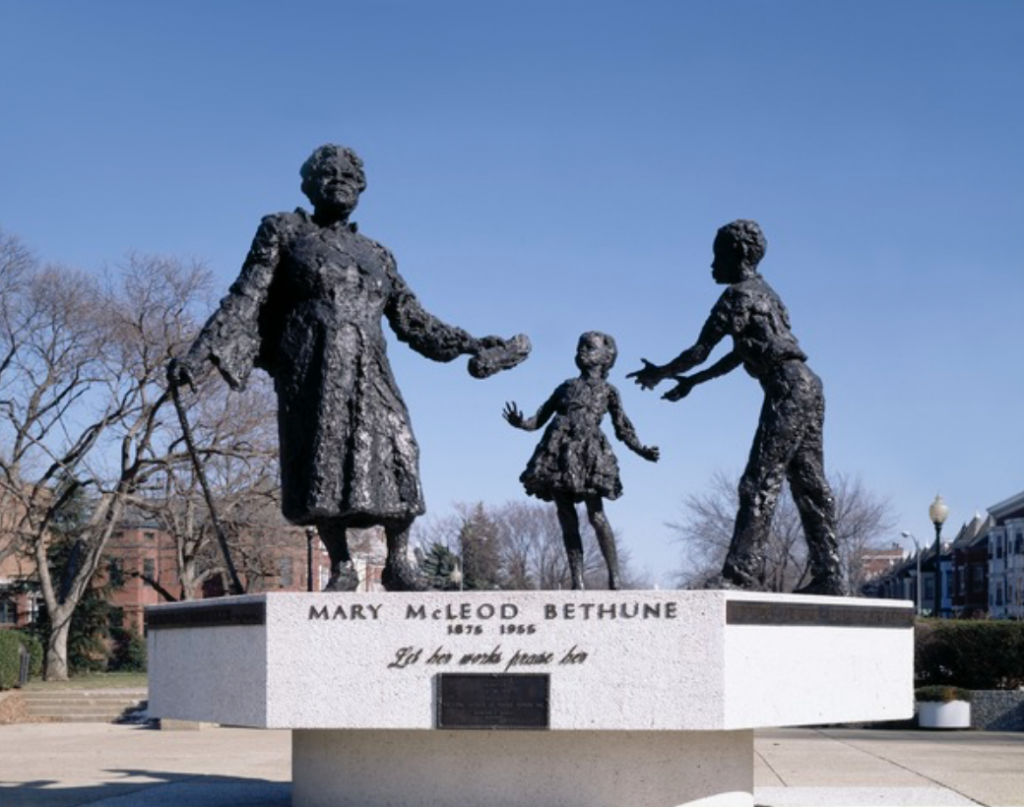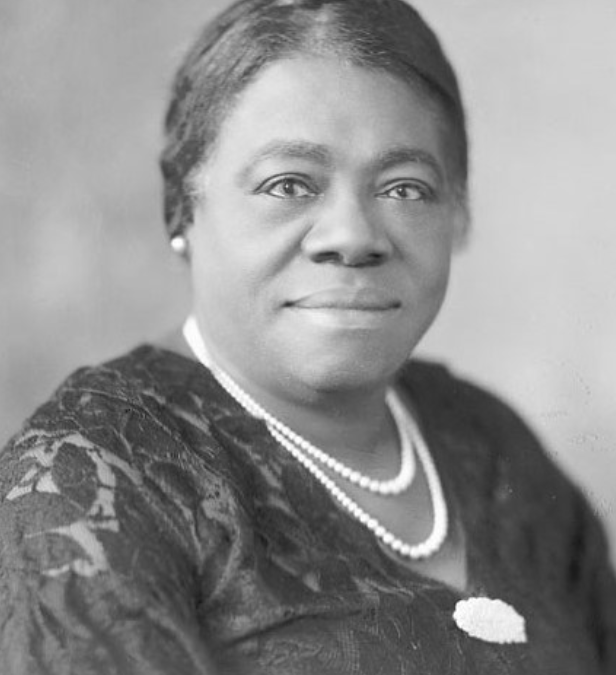Mary McLeod Bethune, during her lifetime, was called “The First Lady of Negro America” and “The First Lady of the Struggle.” In 1974 she became the First African American Woman to have a statue installed in a public park within the District of Columbia.
Mary McLeod was born of former slaves in South Carolina, one of seventeen children. When she was nine years old she could already pick 250 pounds of cotton in a day, working with her mother, until she saved enough money to buy the land. She studied at a seminary for young African American women and prepared to be a missionary. No church would sponsor her, so she became a teacher and married Albertus Bethune, another teacher. The Bethunes moved to Florida where Mary worked two jobs until her marriage ended. In order to support herself she opened the Daytona Beach Literary and Industrial School for Training Negro Girls. That boarding school eventually became a college. In 1929 it merged with Cookman Institute to form Bethune-Cookman College (a historically black institution today called Bethune-Cookman University). She also worked as a businesswoman in Florida where she co-owned a resort and co-founded a life insurance company.
In 1935, Bethune founded the National Council of Negro Women and was the organization’s president. It was the first black-controlled organization that had headquarters in Washington, D.C. A friend of Eleanor Roosevelt, Bethune was appointed by President Franklin Roosevelt as the Director of the Division of Negro Affairs, the First African-American Woman division head in U.S. government. In 1937 she organized a conference on the Problems of the Negro and Negro Youth. She also formed a coalition of leaders from black organizations, called the Federal Council of Negro Affairs. An advisory board to Roosevelt, it became known as the “Black Cabinet.”
Appointed by President Truman, Bethune was the only black woman present when the United Nations was founded in San Francisco in 1945. She spent her life fighting discrimination and lynching.
While living in Washington, D.C., she purchased a Victorian townhouse that housed the National Council of Negro Women on its first two floors. She resided on the third floor. That building is now a historic site.
Honors for Mary McLeod Bethune

1949 – Haiti presented the National Order of Honour and Merit to Bethune, its highest award.
1973 – Bethune was inducted into the National Women’s Hall of Fame.
1974 – The Mary McLeod Bethune Memorial was erected in Lincoln Park in Washington, D.C. Funds provided by the National Council of Negro Women.
1975 – The Mary McLeod Bethune House was named a National Historic Site
1985 – The US Postal Service issued a stamp in Bethune’s honor
1989 – Ebony magazine included Bethune in its list of “50 Most Important Figures in Black U.S. History.”
1991 – The International Astronomical Union named a crater on Venus after Bethune.
2018 – Florida designated one of its two statues in the National Statuary Hall Collection to Bethune. It replaced the statue of a Confederate General.

